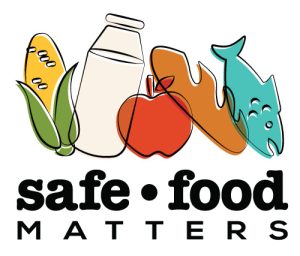
On August 3, 2021, the Government of Canada announced it would pause proposed increases on Maximum Residue Limits (MRLs) of pesticides, including MRLs for glyphosate. There was public outcry to the proposed increases, and the Ministers of Health, Environment and Climate Change and Agriculture and Agri-Food heard it.
The Government says it will review specific provisions of the Pest Control Product Act (the Act), including the initiation of the review process. Safe Food Matters, Prevent Cancer Now, Friends of the Earth and other NGOs have serious concerns with the way the Act has been managed for years by the Pest Management Review Agency (PMRA).
Safe Food Matters and others call for an inquiry into PMRA’s management of pesticides, and a full review of the Act. Some concerns warranting an inquiry and review are set out below.
Why a Full Review is Needed
With respect to MRLs, the Act states that any person can apply for MRLs increases – it was Bayer, the owner of Monsanto, who asked for the doubling and tripling of glyphosate levels in our food, as reported by Thomas Gerbet.
With respect to pesticide reviews, the process takes far too long. The Act requires pesticide re-evaluations to be “initiated” every 15 years, but the re-evaluations themselves can take decades. Glyphosate had been on the market for almost 40 years by the time it was re-evaluated.
Significantly, the approach of the PMRA to the Act does little to protect us from harm. The PMRA does not assess the full pesticide product in its risk assessments, but only looks at one component of the product – the “active ingredient”. The full product has additives that can be more dangerous themselves or cause the product to be more toxic. The Act should require assessment of the full product.
The Act requires an evaluation of health and environmental risks, and improvement is needed on both fronts. PMRA does not have the data or resources to adequately assess environmental risks, and should take steps to get such data or, in the alternative, apply the precautionary principle given the lack of data. It also does not assess the cumulative effects of pesticides.
PMRA’s approach to health risks assessments is dismissive and uses assumptions science is now proving are wrong. For example, PMRA is of the view that glyphosate does not affect the human microbiome, because humans do not have the EPSP synthase enzyme that the chemical directly targets. When evidence of such affect was provided, PMRA dismissed it. With respect to cancer assessments, PMRA dismissed published epidemiological research showing credible strong links between glyphosate and cancer.
Another major problem with PMRA’s approach to the Act is they rely on labels as the cure for all evils. If an assessment actually DOES show an unacceptable risk, PMRA just makes the risk “go away” by tweaking the directions on how to apply it. But giving applicators a 90 page label for the pesticide with tweaks like “buffer zones” and “don’t spray on slopes or when its windy or perfectly calm” does little to protect Canadians. Especially since there is no effective enforcement of the labels.
Transparency Concerns
The Government is on the right track when it says it wants to increase transparency. Transparency is a real concern, particularly in Canada.
In the case of the MRL increases, PMRA did not disclose that Bayer had made the request for more glyphosate, and the Ministers were “surprised” to learn of the proposal to increase the levels. In the case of the 2017 Re-evaluation of Glyphosate, PMRA was clear it favoured industry science over published science, even though Ecojustice has shown that industry science was part of the “Monsanto Papers”
In addition, the science used by industry is effectively not available to the public. It is currently held in a “reading room” in Ottawa, and entrance requires a commissioned affidavit.
The President of Safe Food Matters, Mary Lou McDonald, asked for the industry data behind the glyphosate MRL increases on May 12, 2021, and requested it be made available electronically. PMRA responded it was working on an “alternative reading room”, but was ironing out the difficulties. The data was still not available by the original deadline of July 20, 2021, and as of early writing (August 8) is still not available remotely although PMRA expects it will be available by the end of August. “Unfortunately, at this time we cannot give you a more precise timeline”. The science behind assessments should be made available in a timely and open manner, because it underpins decisions affecting the health of Canadians and the environment.
Do it Once and Do it Right
In conclusion, Safe Food Matters applauds the pause of the increase to MRLs, but calls on the Government of Canada to conduct a full review of the Pest Control Products Act and an inquiry into the management of pesticides by PMRA. There are many concerns about the Act and the process that need to be addressed.
Safe Food Matters Inc. is a Canadian non-profit corporation, founded in 2016, dedicated to safe food and a safe environment. We work to improve regulatory policies to better protect human health and the environment. Our current topics are glyphosate, chlorpyrifos, and GM (genetically modified/edited products).
We are going the only group suing Health Canada over its 2017 re-registration of glyphosate. Please help with legal costs by donating through direct transfer to safefoodmatters@gmail.com or through our GoFundMe link. Every little bit helps! Thanks.

